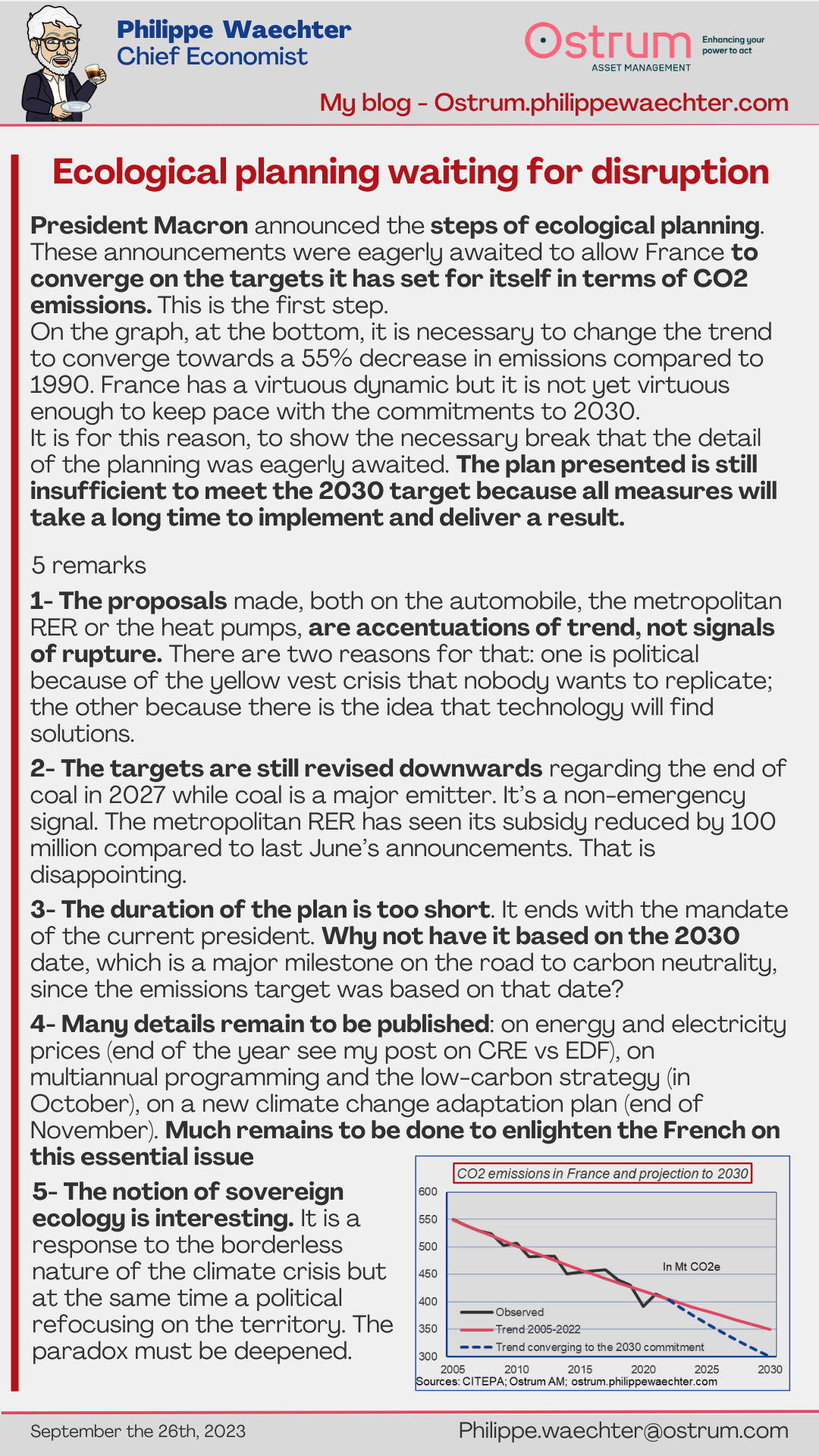President Macron announced the steps of ecological planning. These announcements were eagerly awaited to allow France to converge on the targets it has set for itself in terms of CO2 emissions. This is the first step.
On the graph, at the bottom, it is necessary to change the trend to converge towards a 55% decrease in emissions compared to 1990. France has a virtuous dynamic but it is not yet virtuous enough to keep pace with the commitments to 2030. It is for this reason, to show the necessary break that the detail of the planning was eagerly awaited. The plan presented is still insufficient to meet the 2030 target because all measures will take a long time to implement and deliver a result.
5 remarks
1- The proposals made, both on the automobile, the metropolitan RER or the heat pumps, are accentuations of trend, not signals of rupture. There are two reasons for that: one is political because of the yellow vest crisis that nobody wants to replicate; the other because there is the idea that technology will find solutions.
2- The targets are still revised downwards regarding the end of coal in 2027 while coal is a major emitter. It’s a non-emergency signal. The metropolitan RER has seen its subsidy reduced by 100 million compared to last June’s announcements. That is disappointing.
3- The duration of the plan is too short. It ends with the mandate of the current president. Why not have it based on the 2030 date, which is a major milestone on the road to carbon neutrality, since the emissions target was based on that date?
4- Many details remain to be published: on energy and electricity prices (end of the year see my post on CRE vs EDF in French), on multiannual programming and the low-carbon strategy (in October), on a new climate change adaptation plan (end of November). Much remains to be done to enlighten the French on this essential issue.
5- The notion of sovereign ecology is interesting. It is a response to the borderless nature of the climate crisis but at the same time a political refocusing on the territory. The paradox must be deepened



